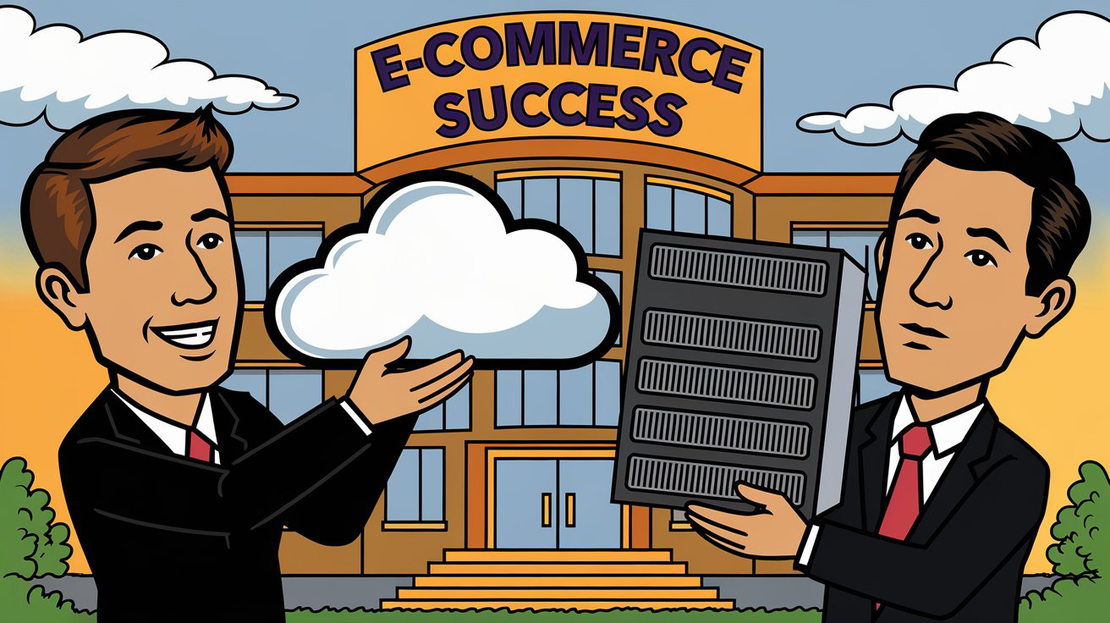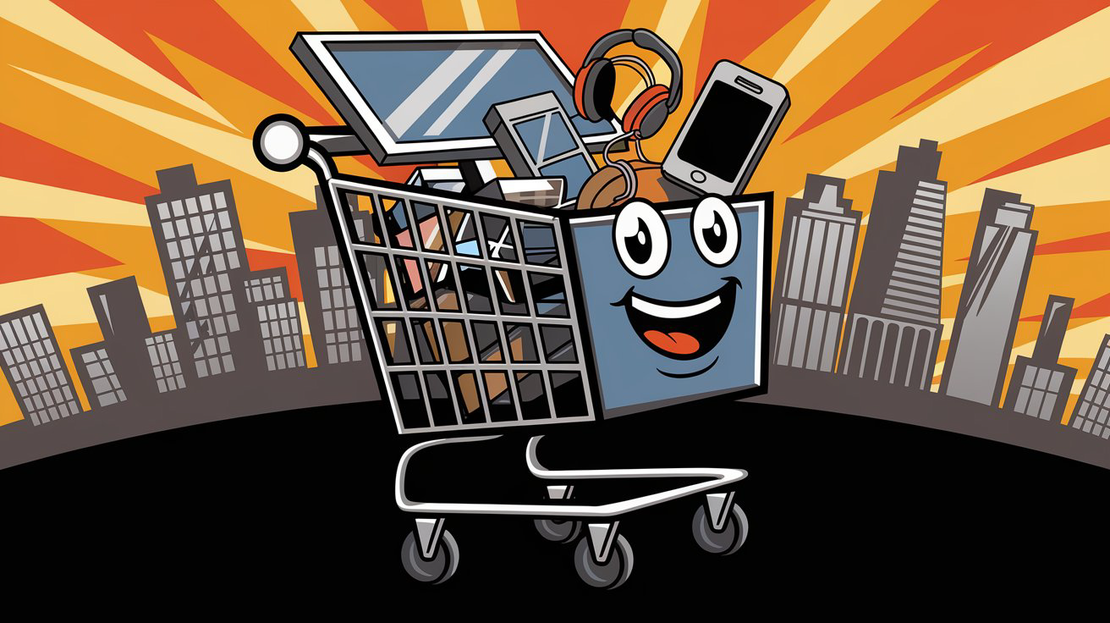
Optimizing E-Commerce: Cloud vs Bare Metal Hosting
- Piotr Wilniak
- E commerce , Servers , Security , Technology
- December 17, 2024
Table of Contents
Choosing the right hosting solution is vital for e-commerce success. In this article, we pit cloud hosting against bare metal servers, examining which is the best fit for various types of online businesses. We’ll analyze performance metrics, cost-effectiveness, and the impact on user experience. You’ll discover how the scalability of cloud solutions can benefit seasonal sales and varying traffic, while bare metal’s dedicated resources can handle consistent load. Through real-world case studies and expert recommendations, identify the key factors that will help enhance your store’s reliability and efficiency.
The Crucial Role of Hosting in E-Commerce Performance
In the fast-paced world of e-commerce, choosing the right hosting provider is crucial, yet often overlooked.
Reliable hosting can boost your website’s uptime to over 99.9%. This kind of reliability builds customer trust; when a site is consistently available, shoppers feel more comfortable engaging and making purchases. For instance, an online retailer that frequently experiences downtime risks not just immediate sales but long-term customer loyalty, as frustrated users are likely to look for alternatives.
Additionally, the right hosting solution can improve page load speed by up to 50%. This enhancement can greatly affect conversion rates, considering that even a one-second delay can lead to a 7% drop in conversions. Imagine a site that usually takes five seconds to load now taking just 2.5 seconds—this could make all the difference between completing a sale and losing a customer to cart abandonment.
By focusing on a solid hosting strategy, online businesses can provide a seamless shopping experience that builds trust and drives sales growth.
Understanding Cloud Hosting: Weighing the Pros and Cons for E-Commerce
Cloud hosting offers impressive scalability, which is crucial for e-commerce businesses dealing with changing traffic patterns, especially during busy seasons. Take a retailer preparing for Black Friday, for example; with cloud hosting, they can easily adjust their resources to handle traffic spikes. This adaptability keeps the customer experience smooth, even when demand unexpectedly surges, protecting sales and boosting brand reputation.
Additionally, the pay-as-you-go pricing model typical of cloud solutions significantly reduces upfront costs. Instead of sinking money into expensive servers, businesses pay only for the resources they actually use. This setup enables e-commerce leaders to match their hosting expenses with real traffic trends and sales results. For instance, a growing startup can invest more in marketing or product development rather than overspending on infrastructure that might be underutilized during slower months.
By recognizing these benefits, e-commerce businesses can make smarter decisions that enhance their operational efficiency and support long-term growth.
Exploring Bare Metal Servers: Advantages for Consistent Performance and Reliability
Bare metal servers shine in the busy hosting market by providing dedicated resources that deliver steady performance, even during peak times. This is especially important when every millisecond matters, like during a flash sale on an online store. With bare metal servers, the infrastructure remains strong, allowing the website to manage high traffic smoothly. This reliability leads to easier transactions and happier customers, reducing the chances of cart abandonment due to slow performance.
Additionally, bare metal servers often boast uptime rates exceeding 99.99%, making them highly reliable for e-commerce operations. In a world where downtime can cause significant revenue loss, this dependability is priceless. Take, for example, a well-known e-commerce platform that uses bare metal servers; their ability to remain online during key sales events has helped establish their reputation and build customer loyalty. When shoppers know they can count on a site during crucial shopping moments, they’re more likely to return, resulting in repeat business and improved profitability.
By incorporating bare metal servers into your hosting strategy, you not only secure a strong performance foundation but also help create a loyal customer base that appreciates reliability and speed. This strategy can boost your e-commerce brand in a competitive market, leading to ongoing growth and success.
Performance Metrics: Speed and Uptime in Cloud vs Bare Metal
In the world of e-commerce, speed and uptime are crucial for keeping customers happy and loyal.
Cloud hosting solutions can deliver average load times of under 200 milliseconds, which is vital for a great user experience. When customers visit a website that loads quickly, they’re more likely to browse products and complete their purchases. For example, a fashion retailer using cloud hosting might notice a significant boost in engagement during busy shopping times, as fast page loads keep potential buyers interested.
On the other hand, bare metal servers are known for their consistent response times, even when handling over 10,000 concurrent users. This reliability is essential during high-traffic events like:
- Flash sales
- Holiday promotions
In these situations, any delay can result in lost sales. Imagine a tech gadget retailer running a limited-time deal; with bare metal, their site can manage the influx of visitors without a hitch, making sure every interested customer can finish their purchase smoothly.
By finding the right balance between these two hosting options, e-commerce businesses can enjoy the speed of cloud solutions while also taking advantage of the strong performance of bare metal servers. This strategic combination creates a seamless shopping experience for customers, which ultimately boosts conversions and strengthens brand loyalty.
Cost-Effectiveness Analysis: Evaluating Financial Implications of Hosting Solutions
Evaluating the financial aspects of hosting solutions is crucial for e-commerce businesses aiming for sustainable growth.
Cloud hosting shines by potentially reducing operational costs by up to 30% compared to traditional options. This notable savings allows companies to use their resources more effectively. For example, funds saved can be redirected toward:
- Marketing
- Product innovation
- Enhancing user interfaces
- Expanding product lines
These improvements ultimately boost customer satisfaction and drive sales.
On the other hand, bare metal servers may require a higher initial investment—typically between $1,500 and $5,000—but they can lead to long-term savings of up to 20% in performance costs. These servers offer dedicated resources that ensure reliable performance, especially during peak traffic times. For instance, an e-commerce site facing seasonal spikes can avoid the hidden costs of downtime or slow load times, resulting in a more stable revenue stream.
By understanding these financial dynamics, e-commerce executives can make informed choices that align with their strategic goals, leading to a more resilient business model.
Real-World Success Stories: Choosing the Right Hosting for E-Commerce
Choosing the right hosting solution can greatly influence your e-commerce success, and real-world examples show just how impactful this can be.
Businesses using bare metal servers have reported a 25% increase in transaction speeds during busy periods. This improvement is vital during peak sales events, where timing is everything. For example, an electronics retailer that took advantage of bare metal infrastructure saw a significant boost in sales during holiday promotions. Customers enjoyed faster checkouts, which resulted in fewer abandoned carts and increased revenue.
On the other hand, experts recommend cloud hosting, especially for startups, pointing out a 40% reduction in initial costs as a major benefit. This cost-effectiveness enables new businesses to invest more in:
- Marketing
- Product development
A small online clothing brand, for instance, made a smoother market entry by opting for cloud solutions, allowing them to scale easily during their first big sale without the stress of upfront hardware expenses.
By learning from these success stories, e-commerce leaders can make smarter choices that support their growth strategies, ensuring a reliable and responsive online presence.
Summary
In the competitive landscape of e-commerce, selecting the ideal hosting solution is pivotal yet frequently underestimated. The article emphasizes that reliable hosting, whether cloud-based or bare metal, directly correlates with customer trust and conversion rates. For instance, a mere second’s delay in page load can diminish conversions by 7%. Hence, the choice of hosting can significantly impact sales and customer loyalty.
Cloud hosting’s scalability is a game-changer, particularly for businesses anticipating traffic surges during peak seasons. This flexibility, coupled with a pay-as-you-go model, allows for optimal resource allocation, enabling firms to reinvest in growth-focused areas. Conversely, bare metal servers provide consistency and robustness during high-demand periods, ensuring a seamless customer experience that fosters loyalty.
As e-commerce leaders evaluate hosting options, they must consider not just immediate performance but also long-term financial implications. By understanding the strengths of each solution, executives can strategically align their hosting choices with broader business objectives, driving sustained growth and competitive advantage. How can your organization leverage these insights to enhance customer experience and operational efficiency?


